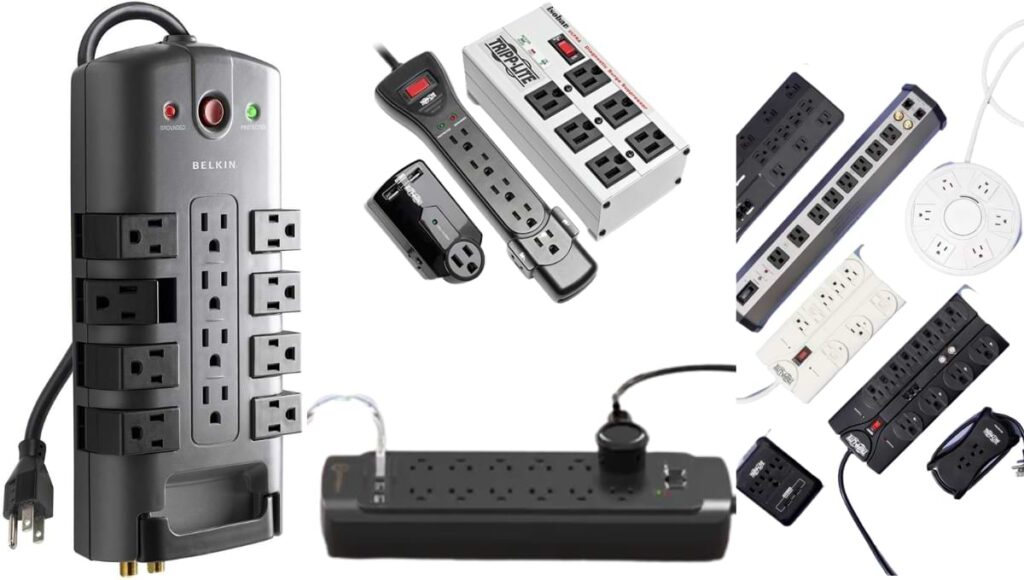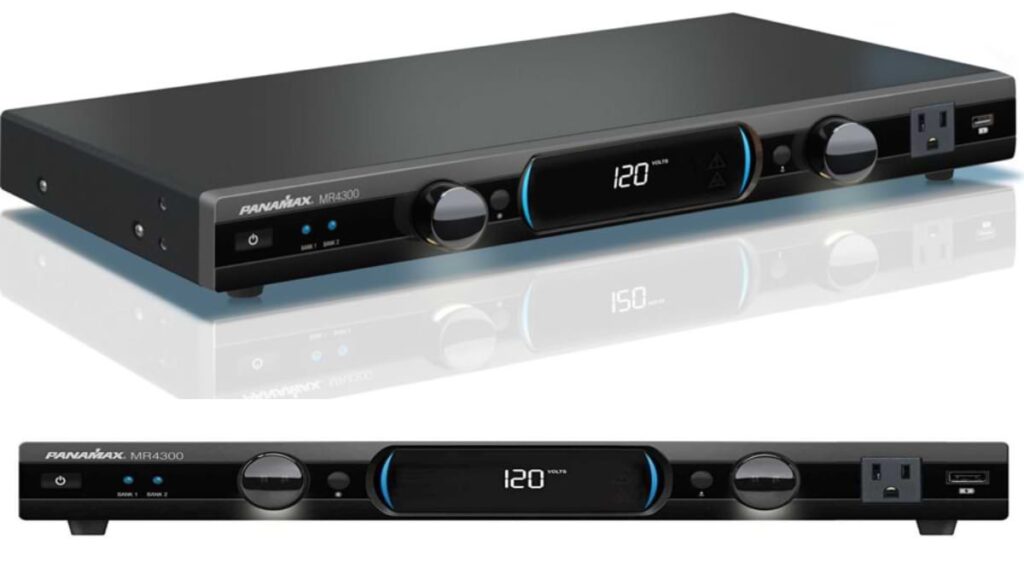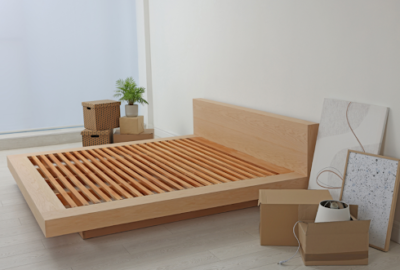The Best Home Theatre Power Manager For Your Needs
When it comes to home theatre power manager, there are many options available. For example, some people prefer to use a single power amp, while others use a combination of amps and receivers. While each person has their preferences, there are some things that everyone should consider when choosing a home theatre power manager. First, one of the most important factors is how much power the power manager can supply. Secondly, the power manager should have features that allow it to control multiple components in the system.
Types Of Home Theatre Power Managers
Home theatre power managers come in various types, each with its benefits and drawbacks. Personal control managers are simple devices that allow users to monitor and adjust their home theatre’s power levels from a remote location. Semi-professional control managers are more comprehensive, allowing for more advanced features such as schedule management and system monitoring. Finally, professional control managers are the most comprehensive, offering automatic system calibration and error detection features. Choosing the right type of home theatre power manager for your needs is important based on the features you want and the level of sophistication you’re comfortable with.
Factors To Consider When Choosing A Home Theatre Power Manager
When choosing the best home theatre power manager, there are a few factors to consider:
- Budget, as each product has its price range.
- Features should be considered. Some control managers offer features like remote control capabilities or sleep mode functionality. Compatibility is also important, as some products work with only certain types of electronics.
- When you’re ready to purchase a control manager, several online retailers offer excellent prices, great customer service, and fast delivery.
Choose from among the best power management products available and start enjoying your movie or music collection in a new way.
Which Home Theatre Power Manager Is The Best For You?
There are many different home theatre power managers on the market, so it can be hard to decide which one is the best for you. However, here are some factors to consider when choosing a control manager:
- What type of power source do you have? Many power managers work with AC or DC electrical outlets, so make sure your home has those sockets.
- How many devices do you want to charge at once? Some control managers can handle up to 12 devices at once, while others can only manage 4 or 5.
- Are you willing to spend money on a quality product? Power managers range in price from around $50-$100, and some are of better quality than others.
- Is the power manager easy to use? Some control managers are very easy to use, while others take time to figure out how to use them.
What Are Home Theatre Power Managers?
A control manager is a small device that helps you control and manage your home theatre equipment. They come in various shapes and sizes and can be attached to your home cinema receiver, A/V receiver, or gaming system. Some control managers also have features that allow them to control other devices in your house, like lights and thermostats.
When choosing a control manager, it’s important to consider what you need it for. For example, a basic model will do the job if you only need the power manager to turn your systems on and off. On the other hand, if you want more advanced features like schedule management or device control, you’ll want to look for a more expensive option.
Once you’ve chosen the right power manager for your needs, installation is easy.
What Are The Best Home Theatre Power Managers?
There are a lot of different home theatre power managers on the market, so it can be difficult to decide which one is best for you. However, here are some things to consider when choosing a control manager:
- What features are important to you? For example, some control managers have remote controls, noise cancellations, and security cameras.
- How much power do you need? Some control managers have larger batteries than others.
- How often will you use the power manager? Some control managers only work when plugged in, while batteries or solar panels can power others.
- Do you want a single device that manages all your devices or separate devices for music, TV, and movies? Some control managers have multiple modes, so you can set them up the way you want them.
When it comes to home theatre systems, there are a variety of components that need to be powered for the system to function. For example, a television, a sound bar, an A/V receiver, and speakers may be connected. If one of these devices is not adequately powered, the entire system can become unstable or even unusable.
One way to ensure that all components are properly powered is to use a home theatre power manager. A control manager can connect to all devices in your home theatre system and manage their power levels to work together harmoniously. This can save you time and hassle because it will prevent any component from suddenly dying and leaving your system unusable.
Another benefit of using a control manager is that it can help keep your system running smoothly by regulating its power consumption.
What Is Dirty Power?
Dirty power refers to the energy used by electronics and appliances in homes. These devices can produce harmful emissions, including pollutants such as benzene and formaldehyde. Dirty power can also come from traditional energy sources like coal and oil, which release toxins when burned. As an effect, some people are turning to cleaner options like solar and wind to reduce the amount of dirty power used in homes. Others are taking advantage of new technology that manages dirty power device-by-device.
What Are The Uses Of Home Theatre Power Manager?
Regarding home theatre, one of the most important things to consider is ensuring that your equipment runs smoothly and efficiently. One way to do this is by using a home theatre power manager.
Here are just some of the benefits of using one:
- It can help ensure that all your devices are running at their peak performance.
- It can save you time by automatically turning off devices when they’re not in use.
- It can help to improve the overall look and feel of your house theatre system.
- And, last but not least, it can save you money on electricity bills. So if you’re looking for an effective way to improve the overall performance and look of your house theatre setup, then a control manager may be just what you’re looking for.
- Meta Quest Pro unlocks new perspectives in work, creativity, and collaboration.
How Does Home Theatre Power Manager Work?
When it comes to watching your favorite movie or TV show at home, you want the best experience possible. That means having a quality home theatre system that is powerful and able to deliver the images and sounds you desire. But selecting the right power manager for your needs can be tricky. So how do you choose the perfect one?
You need to consider a few things when choosing a control manager for your home theatre system. Firstly, what type of system do you have? Are you looking for an amp or receiver only? Or are you looking to manage everything from one central location? Secondly, what kind of features are important to you? Do you want remote access and scheduling capabilities? Or do you just want to turn on your system and enjoy the show? And finally, how much money are you willing to spend? There are power managers available for almost any budget.
Is A Control Manager/Conditioner The Same As A Surge Protector?

Power management is one of the most important aspects of a home theatre setup. Not only do you need to make sure your equipment is functioning properly, but you also need to be aware of potential power outages and ensure your gear is protected in an emergency.
To help with this, many people opt for a control manager conditioner. These devices essentially act as surge protectors for your home theatre system and other electronics. They are designed to help prevent damage caused by voltage spikes and other power surges.
While a control manager conditioner is similar to a surge protector in many ways, some key differences should be considered before making a purchase. First and foremost, a control manager conditioner should be able to handle more than just home theatre gear. It should be able to protect all types of electronic equipment in your home, from TVs to computers.
Are Home Theatre Power Managers Worth It?
When it comes to home theatre setups, there are many different options and decisions to be made. Whether you’re looking for a powerful power manager to help run your system smoothly or just want to choose the right components for your room, it can be hard to decide which option is best for you.
Here are some things to consider when selecting a home theatre power manager:
- How many devices do you have plugged into your TV? A lot of control managers have compatibility with many different types of devices, so make sure to check before making your purchase.
- What type of media do you use most often? For example, some control managers are specifically tailored towards movie buffs or gamers, while others work well with all types of content.
- How often do you want to be able to control your system from anywhere in the house?
- Do you want to use your power manager to charge your devices simultaneously? Some control managers feature this functionality, while others are just a single device.
- How much money do you have to spend? Power management is an important feature that will determine how well your system performs.
How Long Do Home Theatre Power Managers Last?
When it comes to choosing a home theatre control manager, you have a lot of choices. But what do you need to consider before making your purchase?
Here are some key factors:
- What type of power management system do you need? There are three main types of power management systems: manual, automatic, and hybrid. Manual power managers require users to engage in a certain process to activate the device; automatic power managers require no interaction from users. Finally, hybrid systems allow for both manual and automatic activation.
- How often will you need to activate the power manager? Automatic power managers should be activated at least once every 24 hours to maintain optimal performance; manual power managers should be activated as needed.
- How much AC adapter(s) do you need? There are many factors to consider when choosing a home theatre power manager, from what type of devices you have to how many people will be using the system at once. Here are four of the best options for different types of users.
If you only have one or two devices that need power, a simple power strip with several outlets may be enough. However, if you have more than two devices or want to use the power strip as a central hub for all your devices, a higher-end power manager may be more appropriate.
Pros And Cons Of Home Theatre Power Manager
Home theatre control managers are a great way to keep your system running smoothly. On the one hand, they’re great for tracking how much power each device uses, which can help you save money on your energy bill. They’re also a great way to ensure that all your devices work well together. But, on the other hand, home theatre power managers can be quite expensive. So it’s important to choose the right one for your needs. Here are some things to consider:
How Much Power Do I need?
The first thing you need to do is figure out how much power your home theatre system uses. This will determine what type of home theatre power manager you need. A smaller home theatre power manager will probably work just fine if your system uses less power. However, if your system uses more power, you’ll likely need a more powerful home theatre power manager.
Factors To Look Into Before Considering A Home Theatre Power Manager
Are you looking to buy a home theatre power manager? There are many factors to consider before making a purchase, which vary depending on your system type.
Here are some tips to help you get started:
- Know Your Needs. The first step is figuring out what you need the power manager for. For example, a control manager may be necessary to keep all of them running simultaneously if you have a home cinema system with multiple screens. Or, if your system only has one screen and you want to use it as a home cinema PC, you may not need a control manager.
- Consider How Many Screens You Have. The next thing to consider is how many screens will use the power manager.
- What Type of Power Management Is Needed? There are different types of power management available, and they’re often referred to by the type of device they control.
Clamping Voltage And Energy Absorption Rating
When selecting the right home theatre power manager, there are a few things to consider. One of the most important factors is clamping voltage and energy absorption rating. Below we will look at each in more detail and offer some recommendations for the best power manager for your needs.
Clamping voltage is important because it dictates how much current your power conditioner can handle before shutting down. The higher the clamping voltage, the more powerful your power conditioner will be and the less likely it will be overloaded. Most home theatres operate on 120 or 240 volts, so ensure that you select a control manager that has a clamping voltage of at least 240 volts.
The next factor to consider is energy absorption rating (EAR). This tells you how much power your equipment can take before malfunctioning or getting damaged.
Video Review
Budget
When it comes to budget, there are many factors to take into account. This article will discuss the best home theatre power manager for your needs, based on price and features.
The first thing you need to decide is how much power you need. A small power manager like the Belkin WeMo Insight might be enough for a basic home theatre setup with two or three screens. If you have more screens or devices, you’ll need something bigger like the Elgato Eve Energy+.
Next, think about features. For example, some control managers only let you control electricity usage in specific rooms, while others allow you to control everything from one central location. Some also include scheduling and automatic shutoff in case of a power outage.
Finally, consider the price. This is a personal decision, but it’s useful to know how much you’re spending on electricity. I don’t have a good answer for this one, but hopefully, someone will help me with some data.
Size
When it comes to home theatre systems, size is always an issue. Not only do you need enough power to run the components, but also space for them. This article will discuss the best home theatre power manager for your needs.
A good power manager will have multiple outputs so that you can hook it up to as many devices as possible. It should also have a built-in amplifier and be able to handle high-wattage devices. Lastly, it should be easy to use and have a user interface that is easy to understand.
Availability Of Outlets
There are many factors to consider when selecting a home theatre power manager, but one of the most important is the availability of outlets. Many power managers come with several USB ports that can be used to charge devices, and some also have an HDMI port for connecting devices. Additionally, many control managers have an AC outlet port for connecting a regular home outlet.
A control manager with more USB ports is ideal if you want the flexibility to use multiple devices simultaneously. Some also have an AC outlet to plug in another device, like a TV or gaming console. However, a control manager with an HDMI port will work fine if you only plan on using one or two devices simultaneously.
No matter what type of power manager you choose, read the instructions carefully to ensure it’s compatible with your devices and your electrical outlets.
Protection Against Power Outages
There are numerous home theatre power managers on the market, and it can be difficult to decide which one is best for your needs.
Here are some tips to help you choose the right power manager:
1) Consider your needs. For example, do you want a control manager that automatically turns off devices when the power goes out or one that you must manually turn off?
2) Look at the features. Some control managers have multiple outlets and smart sensors to keep devices plugged in even when the power is out for an extended period. Others may only have one outlet and lack sensors.
3) Consider the price. Not all control managers are created equal; some may be more expensive than others. Factors to consider include features, size, and price.
Power Adapter
A power adapter is a small but necessary piece of equipment when watching movies or TV shows at home. There are many different types of power adapters, each with its specific requirements.
Here are the best home theatre power managers for your needs:
1) The Belkin PowerCore 10000 is the most powerful adapter on the market. It can handle high-power devices like gaming consoles, DVD players, and standards.
2) The iLuv Portable Home Theatre Adapter is a compact and lightweight adapter that can be used with most televisions.
3) The Anker Astro E1 5200mAh Portable Charger is a great choice if you frequently travel and need to keep your devices charged up.
4) The RAVPower 26800mAh Portable Charger is perfect for large devices like tablets and smartphones.
Best Home Theatre Power Managers
When shopping for a home theatre power manager, it is important to consider your needs. There are many different types of power managers, so it can be hard to decide which one is the best for you. Here are four factors to consider when choosing a home theatre power manager: input voltage range, output voltage range, number of devices supported, and features.
Input voltage range: The power manager should have an input voltage range that covers the devices you want to use it with. Most control managers have an input voltage of 12-24 volts.
Output voltage range: The power manager should have an output voltage range covering your devices’ voltages. Most control managers have an output voltage of 20-60 volts.
Several devices supported: A power manager should support as many devices as possible.
Panamax MR4300 Power Manager
If you’re looking for a power manager that can handle all of your home theatre needs, the Panamax MR4300 is a great option. This device has multiple inputs and outputs to accommodate any configuration, and it has an impressive storage capacity to keep your devices powered up for long periods. Additionally, the MR4300 has advanced features like automatic device detection and regulation to ensure that your entertainment is always consistent.
Panamax MR5100 Power Manager
The Panamax MR5100 power manager is a great choice for anyone looking for an easy-to-use and affordable way to manage their home theatre power. This unit features a simple and easy-to-use control panel and multiple power outlets that allow you to connect your devices easily. The Panamax MR5100 also includes a built-in surge protector that can help protect your electronics from spikes in electricity, ensuring that your entertainment will always be enjoyable.
Specifications
There are many different types of home theatre power managers on the market, and it can be hard to decide which one is right for you.
Here are some of the most important specs to consider when choosing a control manager:
- What types of devices does the power manager support?
- How many outlets does the power manager have?
- How large is the power manager’s LCD screen designed to work with?
- What type of battery does the power manager have?
- Does the power manager come with instructions?
- How much does the power manager cost?
- What other features might be helpful, like built-in surge protection or sleep mode capabilities?
Furman M-8Dx Merit Series Power Conditioning
The Furman M-8Dx Merit Series power conditioning system, is a great way to improve the sound quality of your home theatre equipment. It was designed with three main goals: to provide stable, clean power, minimize interference and optimize performance, and protect your equipment from unexpected power outages.
This system has eight outlets and can handle up to 8 amps per outlet. It also has four built-in surge protectors, so you can be sure that your equipment will be safe even if an unexpected power outage occurs. In addition, the M-8Dx’s digital display makes it easy to know what each outlet is powering and how much voltage and amps are being delivered.
My Choice For Home Theatre Power Managers

There are many different types of home theatre power managers on the market, so it can be hard to decide which one is right for you. However, here are three of the best options and why they might be the best fit for your needs:
First, there’s the Belkin WeMo Insight Home Theatre system. This power manager is perfect if you want to remotely control all of your home cinema equipment from one location. You can set up schedules and commands to turn on/off equipment, change channels, adjust volume levels, and more. Plus, it has an app that makes setting everything up a breeze.
Next is the Emerson My Home Theater Remote Control with Alexa. This device lets you use voice commands or an Amazon Echo device to control your entertainment devices.
Home Theatre Power Managers FAQs
What is the difference between a line conditioner and a surge protector?
One of the most important things to remember when it comes to electronics is that they are electrical devices. They can be damaged if you accidentally expose them to too much voltage. Therefore, you need a surge protector and a line conditioner to protect your electronics from damage.
What is the difference between a surge protector and a line conditioner?
A surge protector protects electronic equipment from surges in electricity. When a power outage or the electric company increases the voltage, surges can travel through your home’s wiring and damage electronic equipment. A surge protector can protect your computer, TV, game console, and even appliances like your washer and dryer.
Line conditioners use AC power to clean up the electrical signals going into your electronics. This helps reduce noise on your television picture and eliminates interference on wireless networks.
Do Power Conditioners Improve Sound Quality?
Power conditioners are a popular way to improve sound quality in home theaters. They can help clean up the power, making movies and TV shows play smoother and louder. They can also reduce the number of audio glitches and interference. However, just because a power conditioner improves sound quality doesn’t mean it’s necessary. There are many factors to consider when choosing a power manager, including the budget and specific needs of your home theater.
Can You Overload A Power Conditioner?
Most experts say you can overload a power conditioner if you exceed the recommended wattage. Overloading a power conditioner may cause it to overheat and break down. If this happens, your home theatre system will not function properly, and you may be liable for damages. Following the manufacturer’s recommendations when using a power conditioner is important to avoid any problems. If you are unsure how much power your equipment requires, contact the manufacturer or an authorized retailer for help.
Conclusion
The best home theatre power manager for your needs will be one that can accommodate your specific needs, offers a variety of features and options, and is easy to use. If you’re looking for something that will make your life easier and keep your home theatre system running smoothly, the best option may be a power manager like the ones listed here.







